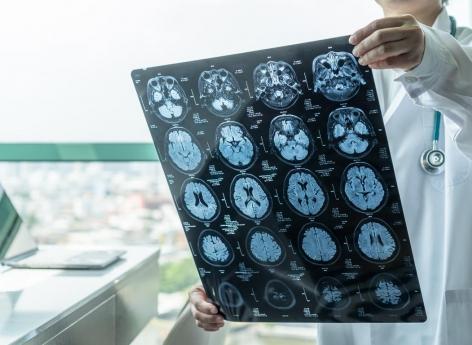
Important
- Very little is known about the possible causes of Alzheimer’s disease.
- Scientists have now explained why mutation of the ABI3 gene is a risk factor.
1.2 million people in France have Alzheimer’s disease Health insurance. It is the most common neurodegenerative disease in France and, like many diseases, it is important to diagnose it early. Early detection of the first symptoms as soon as possible will initiate treatment and this will slow the progression of the still incurable pathology. In fact, even today, scientists are still struggling to understand all the mechanisms and factors involved in Alzheimer’s disease and how to treat it. Recently, human genetic studies have identified a variant of the ABI3 gene that may be associated with an increased risk of developing Alzheimer’s disease. However, the ways in which ABI3 contributes to this are not yet known. To answer this question, the team of researchers wanted to determine whether loss of function of the ABI3 gene affects the pathological symptoms of Alzheimer’s disease, so it was possible to look at its role. Their results have just been published in the journal Science Advances.
ABI3 genetic mutation increases the risk of Alzheimer’s disease
“This study may provide additional information on understanding the key functions of microglia (Immune cells of the brain) Contributes to the disease and can also help identify new treatment goals“, Said Hande Karahan, one of the authors. To perform their work, the researchers analyzed genetic data from more than 85,000 individuals – less than half of whom are Alzheimer’s disease patients – who have a mutation in their ABI3 gene. In detail, scientists removed this ABI3 gene from the brains of mice. As a result, they observed an increase in the levels of amyloid plaques (substances) Forms around neurons and prevents them from functioning properly among other things) And signs of inflammation in the brain as well as synaptic dysfunction. All of these symptoms are associated with Alzheimer’s disease and memory impairment.
Without the ABI3 gene, the role of microglia is no longer guaranteed
Another observation of the researchers: the removal of the gene ABI3 Inhibits the movement of the microglia And reduces its clustering around the amyloid panels. The protective role of microglia is no longer guaranteed. “Our study provides the first functional evidence in vivo that loss of ABI3 function increases the risk of Alzheimer’s disease by promoting the accumulation of beta-amyloid proteins. (Causing amyloid plaques) And neuroinflammation“, Hande assured Karahan. So the researchers were able to understand why Patients with Genetic mutation The risk of developing ABI3 is high Alzheimer’s disease. Ultimately, they hope that this discovery and the following will lead to the development of new therapies and, perhaps, a cure for Alzheimer’s disease.





More Stories
Buy Instagram Followers and Likes: A Detailed Review of InsFollowPro.com
Things to Consider When Going with Sliding Patio for Backyard
Where to Start Automation. Monitor Stands